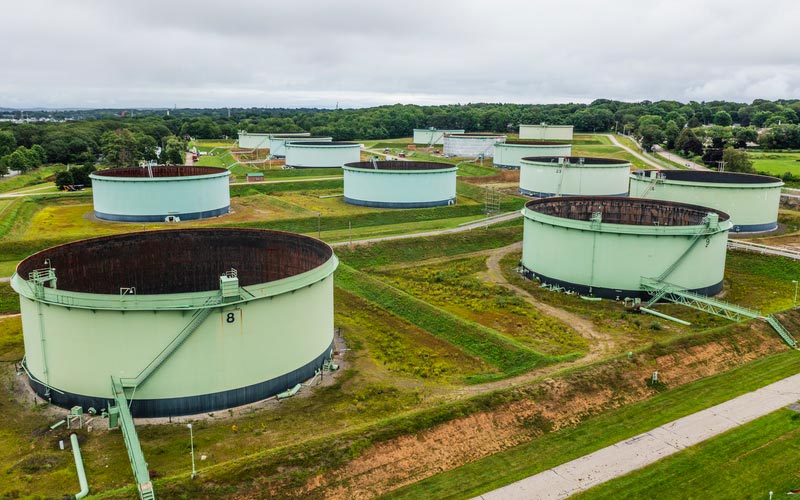
Fossil fuel infrastructure poses major dangers to nearby communities. Photo: EcoPhotography
I still remember where I was when I heard about the Merrimack Valley natural gas explosions. Still new to Massachusetts, I had to excuse myself from my college dining hall conversation and resort to Google Maps to figure out if my sister lived in the danger zone. We were lucky – my twin wasn’t among the more than 50,000 people who were displaced when a failure in natural gas infrastructure triggered a string of explosions and fires that devastated the region and killed a teenager.
Unfortunately, that didn’t mean either of us were safe from the toxic impact of fossil fuels.
Fossil Fuel Disasters Are Deadly for the Environment and for People
As nightmarish as it was, the Merrimack Valley catastrophe doesn’t rank among the worst fossil fuel disasters even in recent memory. Fossil fuels like oil, gas, and coal are combustible, toxic, and absolutely everywhere, posing a danger to those who work with them and those who use them – which covers just about everyone in the United States.
The Exxon Valdez spill famously devastated an entire coast, with brutal ripple effects ranging from hundreds of thousands of dead seabirds to Alaskan Indigenous tribes losing their subsistence hunting and gathering traditions. In 2010, the Deepwater Horizon oil rig explosion killed 11 people and released so much oil into the Gulf of Mexico that sticky balls of tar fouled beaches for years after. The same year, a coal mine explosion in West Virginia killed 29 workers.
These stories aren’t outliers. Data are hard to come by, but between 1968 and 2011, fossil fuel accidents claimed the lives of almost 5,000 Americans and uncountable wildlife.
Fossil Fuel Pollution Is Dangerous, Too
While catastrophic explosions capture headlines, fossil fuel pollution is a quieter and more dangerous killer. Air pollution kills more than 100,000 Americans every year. Not all of that pollution is from fossil fuels, but another study found that coal alone accounts for an average of 43,000 deaths per year in the U.S. For communities near busy, congested streets, tailpipe pollution from gas-powered cars can lead to elevated risks of asthma, heart attacks, strokes, and more.
Fossil Fuels Hurt Some Communities More Than Others
Historically, fossil fuel companies have mostly built their most hazardous infrastructure in lower-income communities of color, which have less power to fight back. These plants, terminals, refineries, and more have an outsized negative impact on the most vulnerable populations. When the facilities release toxic fumes, leak dangerous chemicals into the groundwater, or break down in more spectacular ways, it’s not the mostly wealthy white facility owners who suffer as a result.
The people with the riskiest jobs in the fossil fuel industry – the coal miners, oil rig workers, and people with similar positions – are more likely to be working class as well. Whether they’re developing black lung from coal mining jobs, braving horrendous working conditions on oil rigs, or falling victim to one of the many disasters described above, the fossil fuel industry is a brutal place to work.
And all of these terrible impacts of fossil fuels don’t include what’s likely the most dangerous impact of them all – climate change, which is overheating the planet and raising sea levels.
Renewable Energy Offers Hope
Recently, a turbine blade broke and fell off an offshore wind turbine that was part of the Vineyard Wind project. Debris from the blade has washed ashore on nearby beaches and temporarily halted tourism. Vineyard Wind must move forward with transparency, accountability, and a commitment to preventing any incident like this in the future.
While this is unequivocally a harm to the environment, it also plainly pales in comparison to the damage done by fossil fuels. No one was killed or even injured in the incident. There’s no evidence that marine life has been harmed. This was the first incident of its kind in New England’s growing offshore wind infrastructure.
This accident signals a need for ongoing caution, not a U-turn. Fossil fuel infrastructure puts people and communities in obvious peril. Clean energy isn’t perfect – no source of energy is – but it’s a clear and enormous improvement on what we have. Even beyond countering the deadly threat of climate change, an equitable transition to renewable energy will save lives.



